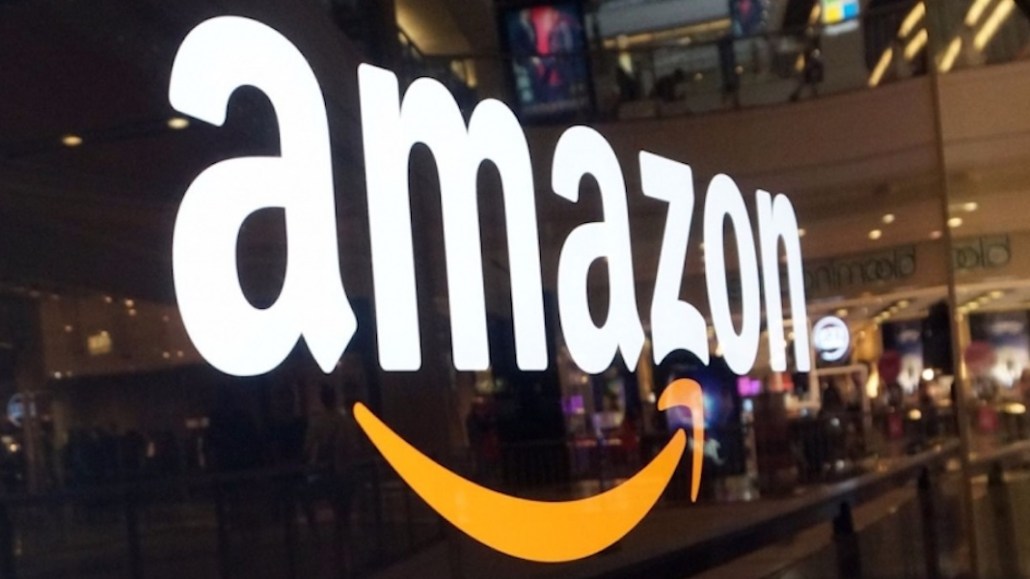Secure your place at the Digiday Publishing Summit in Vail, March 23-25

Not everything Amazon touches turns to gold. Amazon is officially retiring its aStore affiliate feature after years of disappointing revenue returns. The feature, which Amazon will shutter on Oct. 27, offers Amazon affiliates the ability to generate returns from placing their Amazon stores directly on their websites.
Amazon incorporated aStore into its Amazon Affiliates Program in August 2006 with the idea that followers of influencers and their blogs would want to buy the Amazon products referenced on those websites. By clicking on a product from a website’s aStore, users are redirected to Amazon.com, where they can make a purchase. Affiliates then get paid a cut, ranging from zero to 10 percent, depending on the category of the item. For instance, affiliates see no compensation on sales of wine products and Amazon gift cards, but 10 percent from selling from categories like “Amazon Fashion Women” and “Luxury Beauty.”
The retirement of aStore comes at the same time as Amazon is increasing its involvement with influencers. In March, Amazon created its Amazon Influencer Program for YouTube celebrities. Amazon influencers receive vanity URLs to stores they can curate within Amazon, so their followers can see what products they recommend from Amazon. This similar to the aStore concept for affiliates. The move to shutter the affiliate store model can be seen as an endorsement by Amazon of influencers as the backbone of an affiliate network of their own, according to Cooper Smith, director of Amazon research at business research firm L2.
“Amazon decided to hit the refresh button on the aStore concept and roll it into its influencers program, which has greater potential as an affiliate network because of its roots in social media and video,” said Smith.
Several affiliates said they either dropped their aStores or have not updated them because of disappointing levels of engagement and sales. Amazon said as much in its “retirement” fact sheet for aStores. The influencer stores also give Amazon the ability to track how many people click to view these curated stores, whereas only the affiliates had this information before. It’s likely that Amazon will continue to press into using influencers. In July, it launched Amazon Spark, a social feed for Amazon Prime users that influencers describe as a cross between Pinterest and Instagram. So far, Amazon is compensating a select few influencers from its Influencer Program to create #sponsored posts for the feed, but overall, the platform has not been beneficial to influencers in general as far as reach and compensation is concerned.
“Affiliate marketing often has this feel of being a bit more transactional and promotional,” said Ashley Banks, director of digital strategy and media at Iced Media, “whereas influencers, because they’ve built up this trust and authenticity, it feels like they are only talking about products they want to be sharing.”
Influencer Justin Livingston, who has more than 400,000 followers on his social channels and millions of visitors to his lifestyle blog a month, said he stopped using aStore nine months ago. Livingston discovered that even in the months he heavily promoted his aStore, he only made $400-$500 a month, a little less than 2 percent of the nearly $50,000 he makes monthly from sponsorships and other affiliate programs.
“While it was nice to have the breadth of Amazon’s marketplace at my fingertips,” said Livingston, “I found the commission rates were often extremely low, which made putting the effort into using the aStore function not worth the time.”
More in Marketing

‘The conversation has shifted’: The CFO moved upstream. Now agencies have to as well
One interesting side effect of marketing coming under greater scrutiny in the boardroom: CFOs are working more closely with agencies than ever before.

Why one brand reimbursed $10,000 to customers who paid its ‘Trump Tariff Surcharge’ last year
Sexual wellness company Dame is one of the first brands to proactively return money tied to President Donald Trump’s now-invalidated tariffs.

WTF is Meta’s Manus tool?
Meta added a new agentic AI tool to its Ads Manager in February. Buyers have been cautiously probing its potential use cases.





